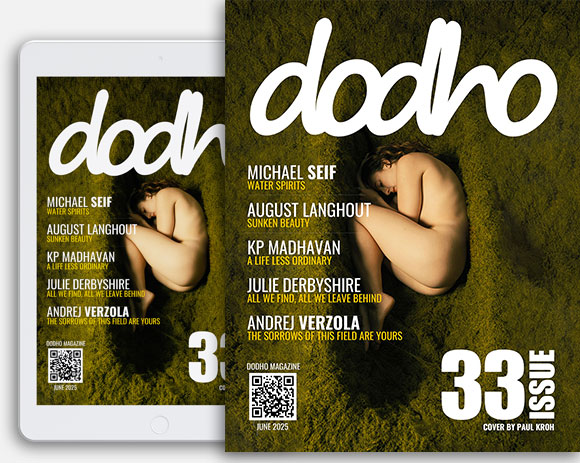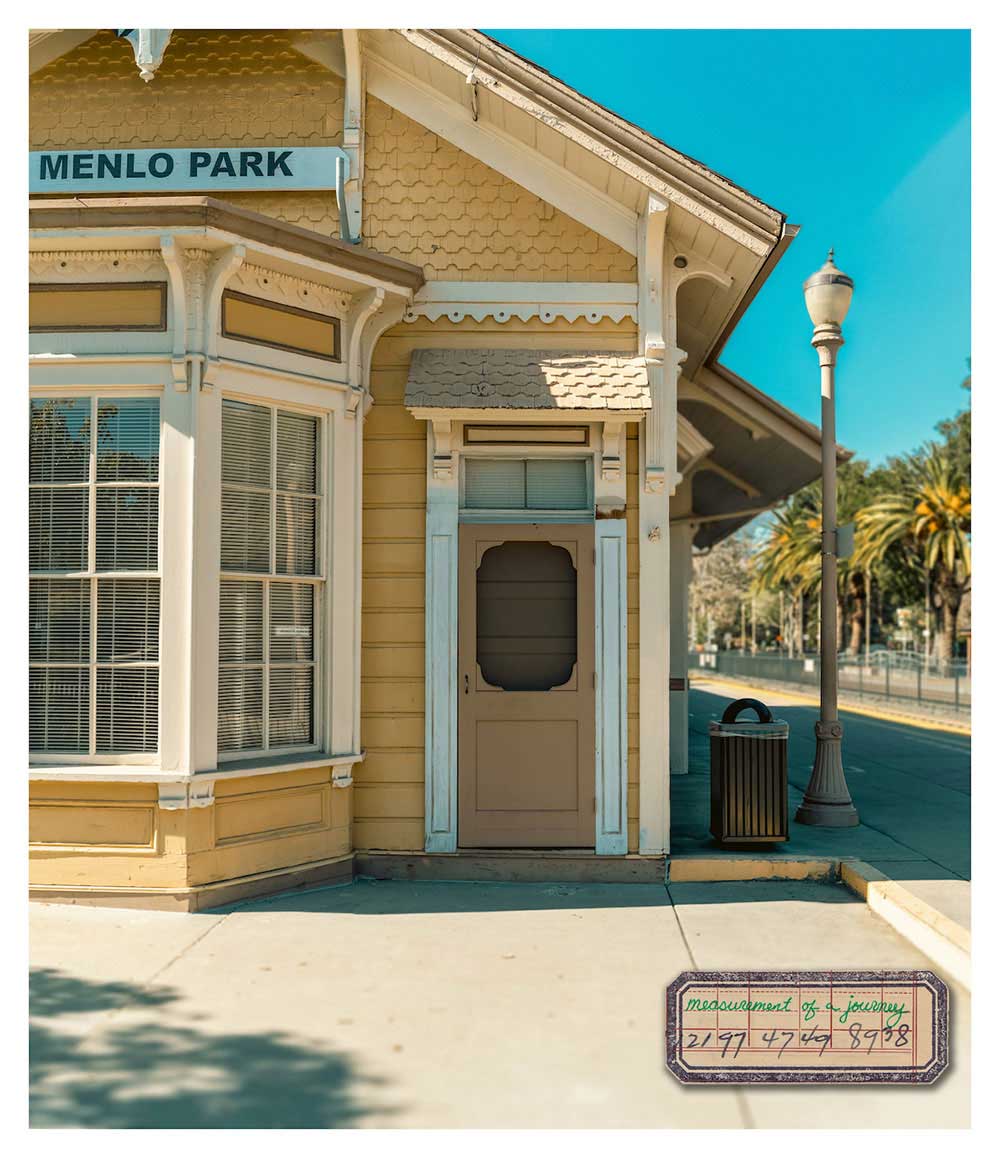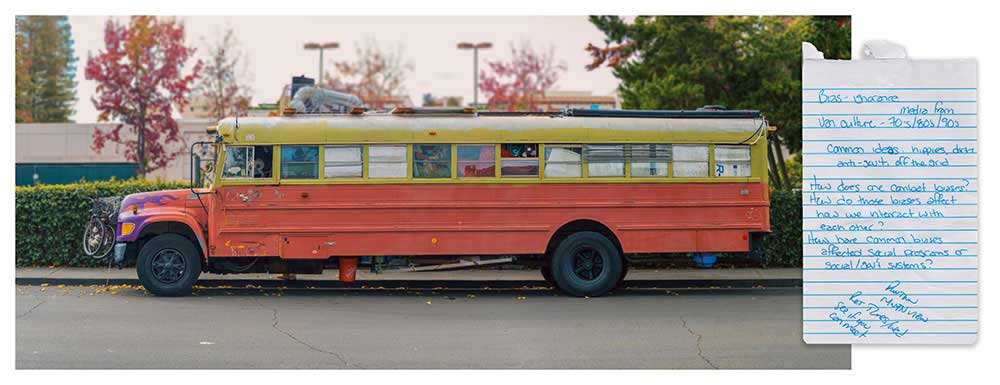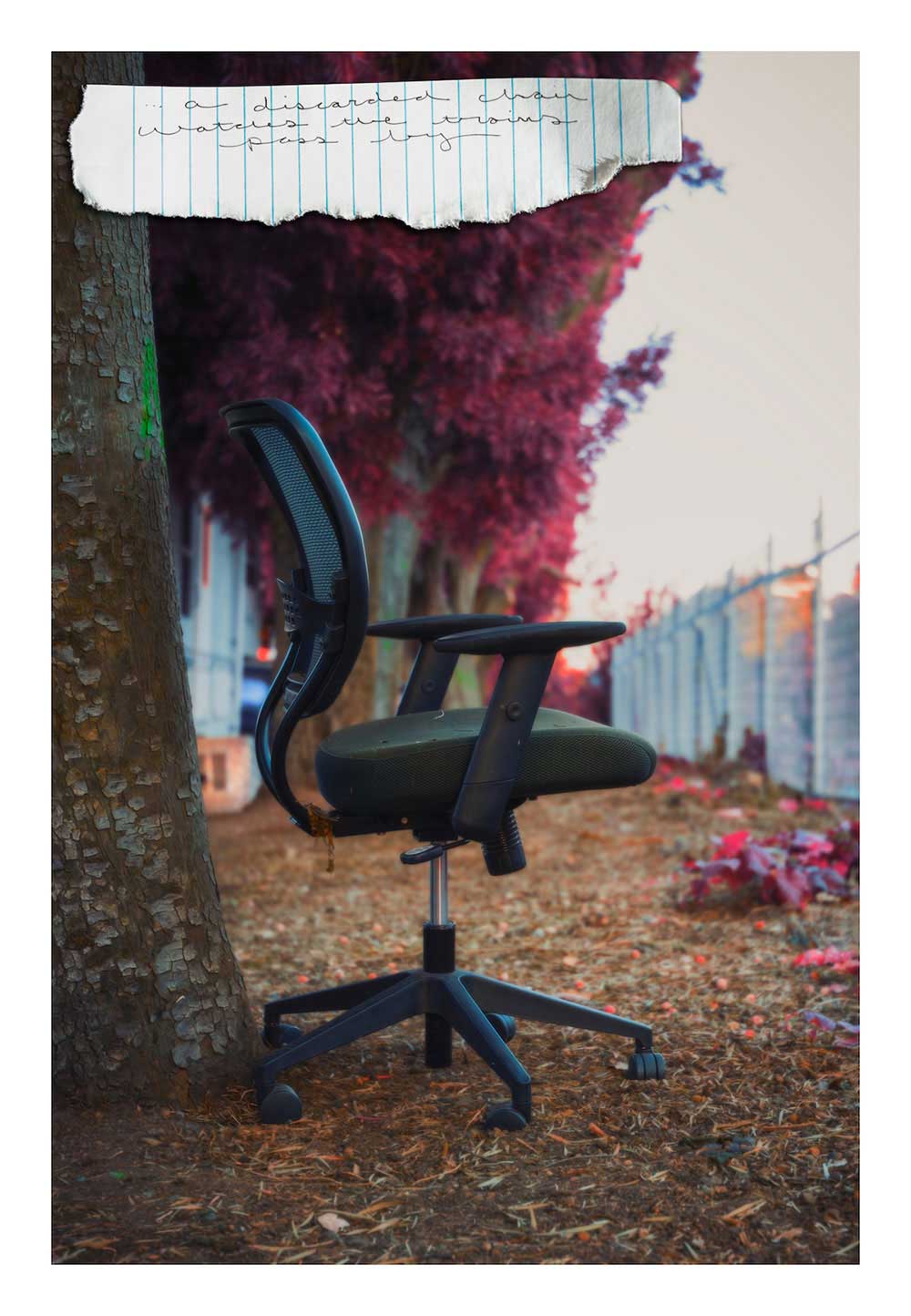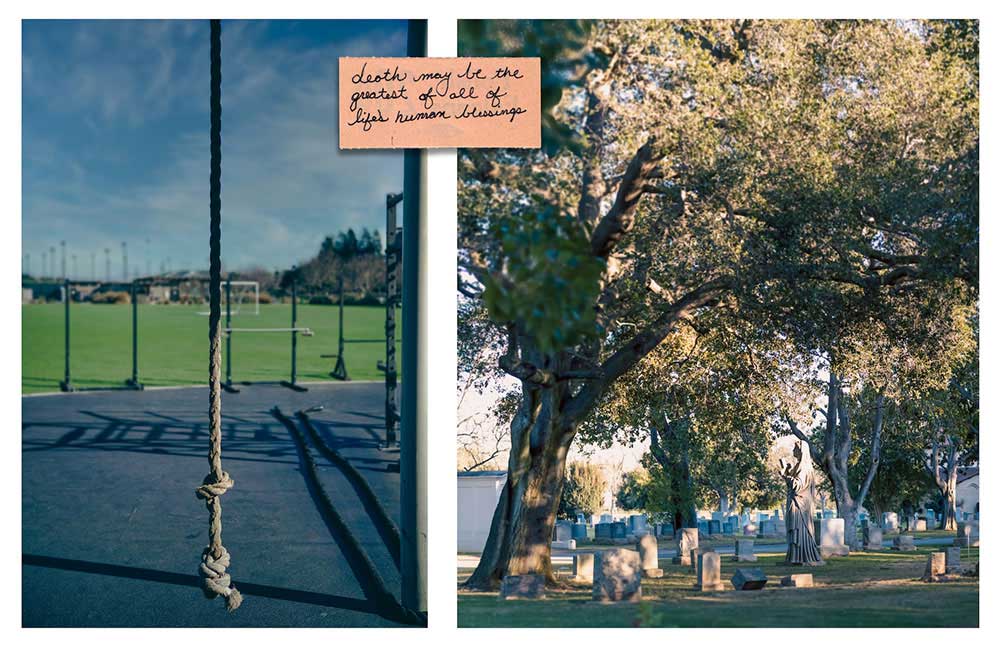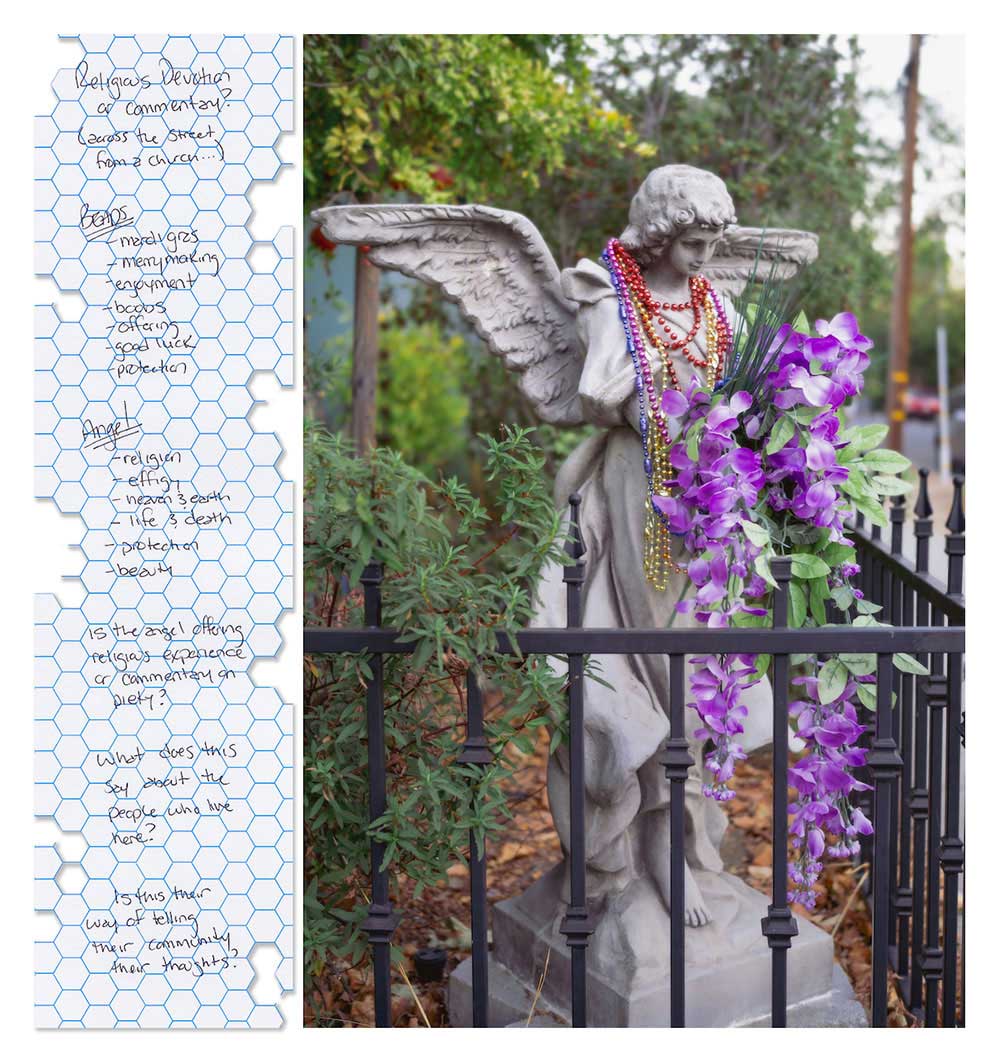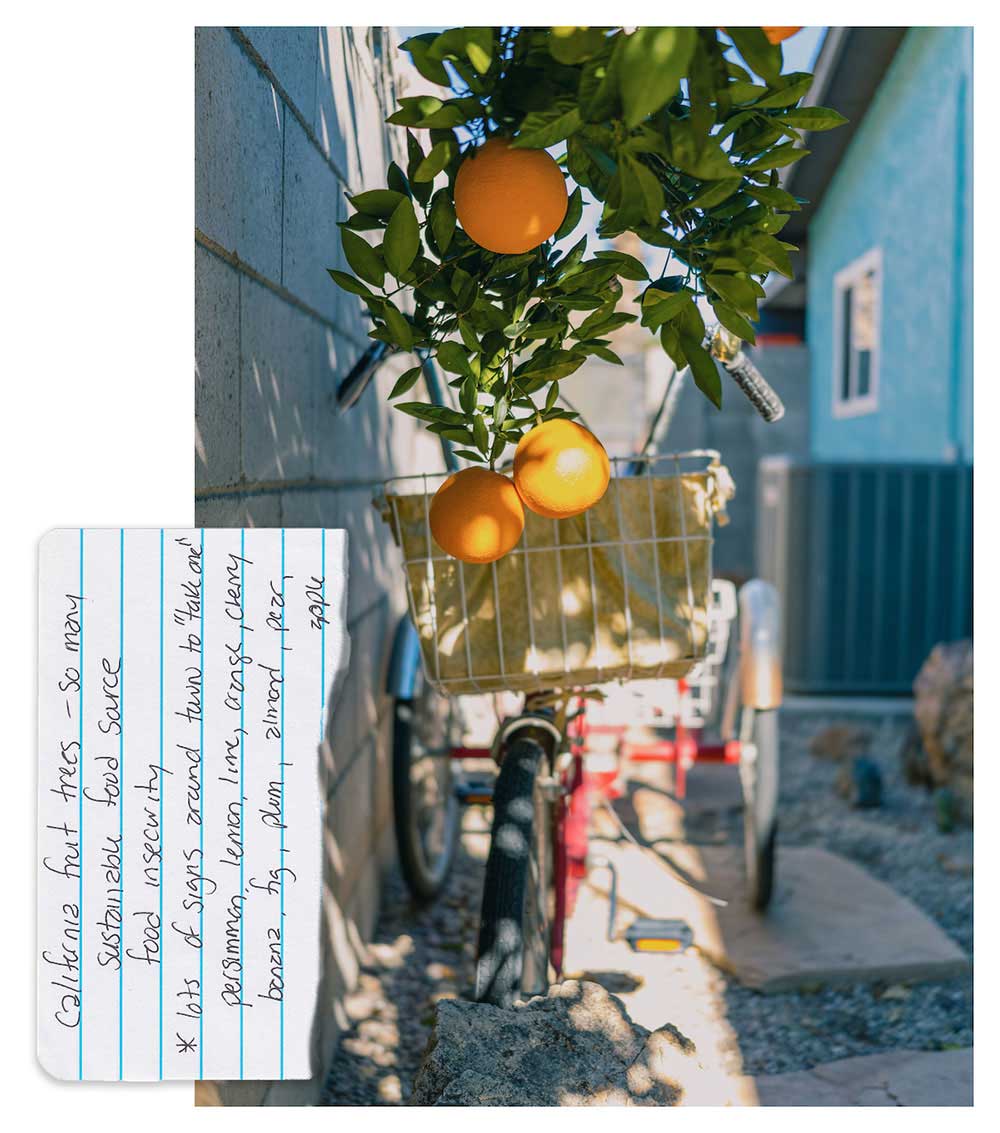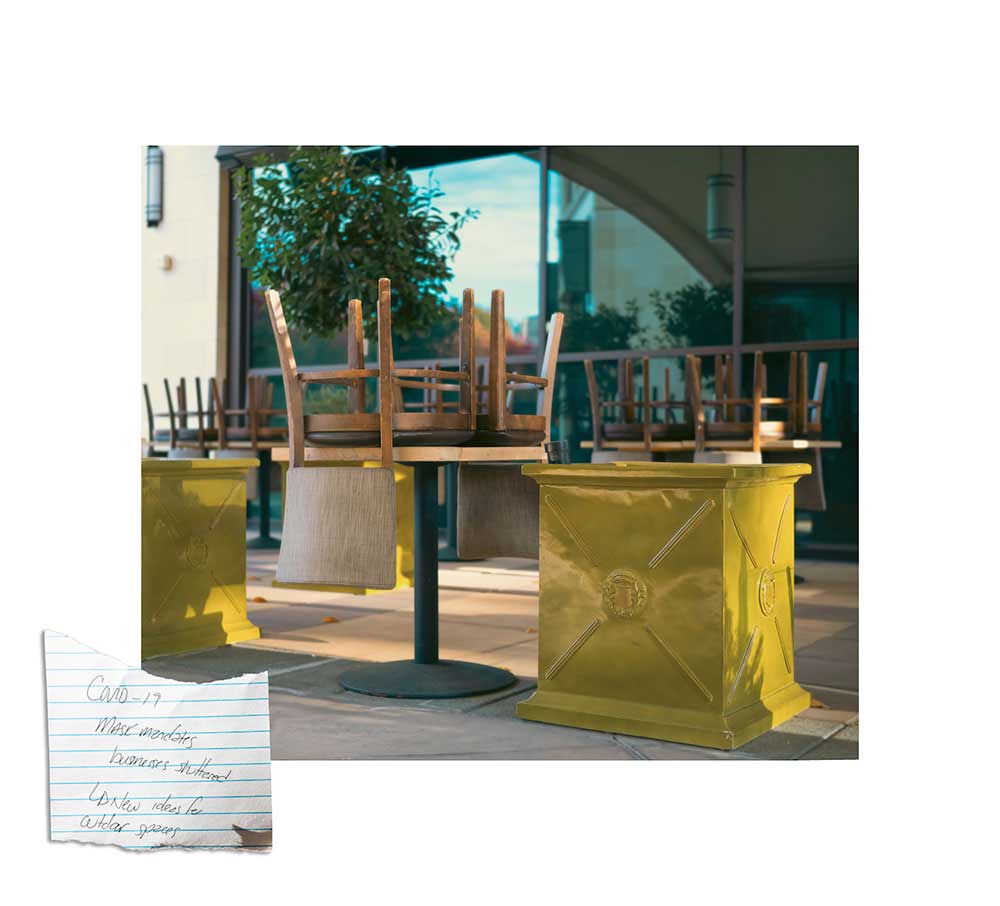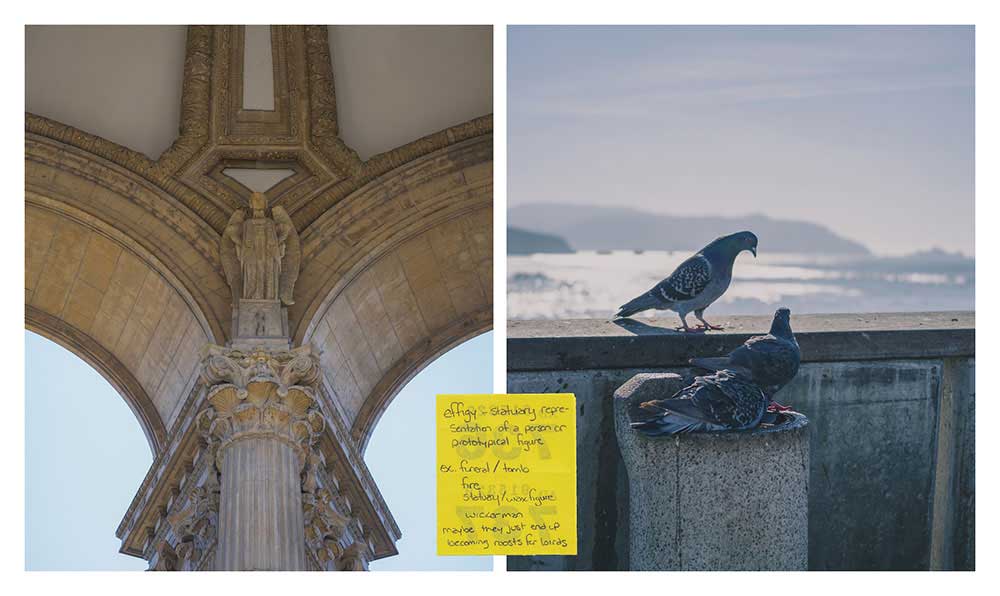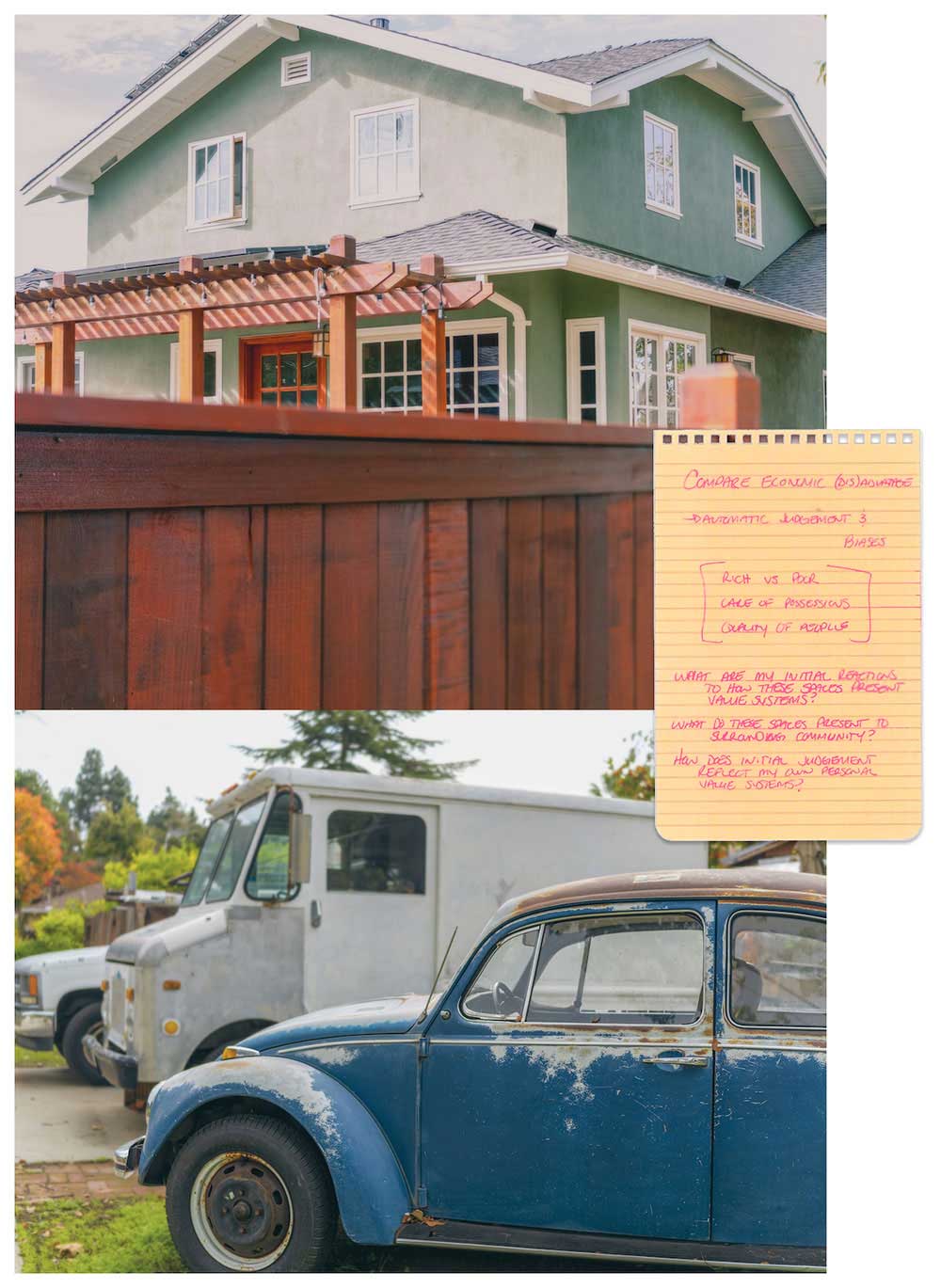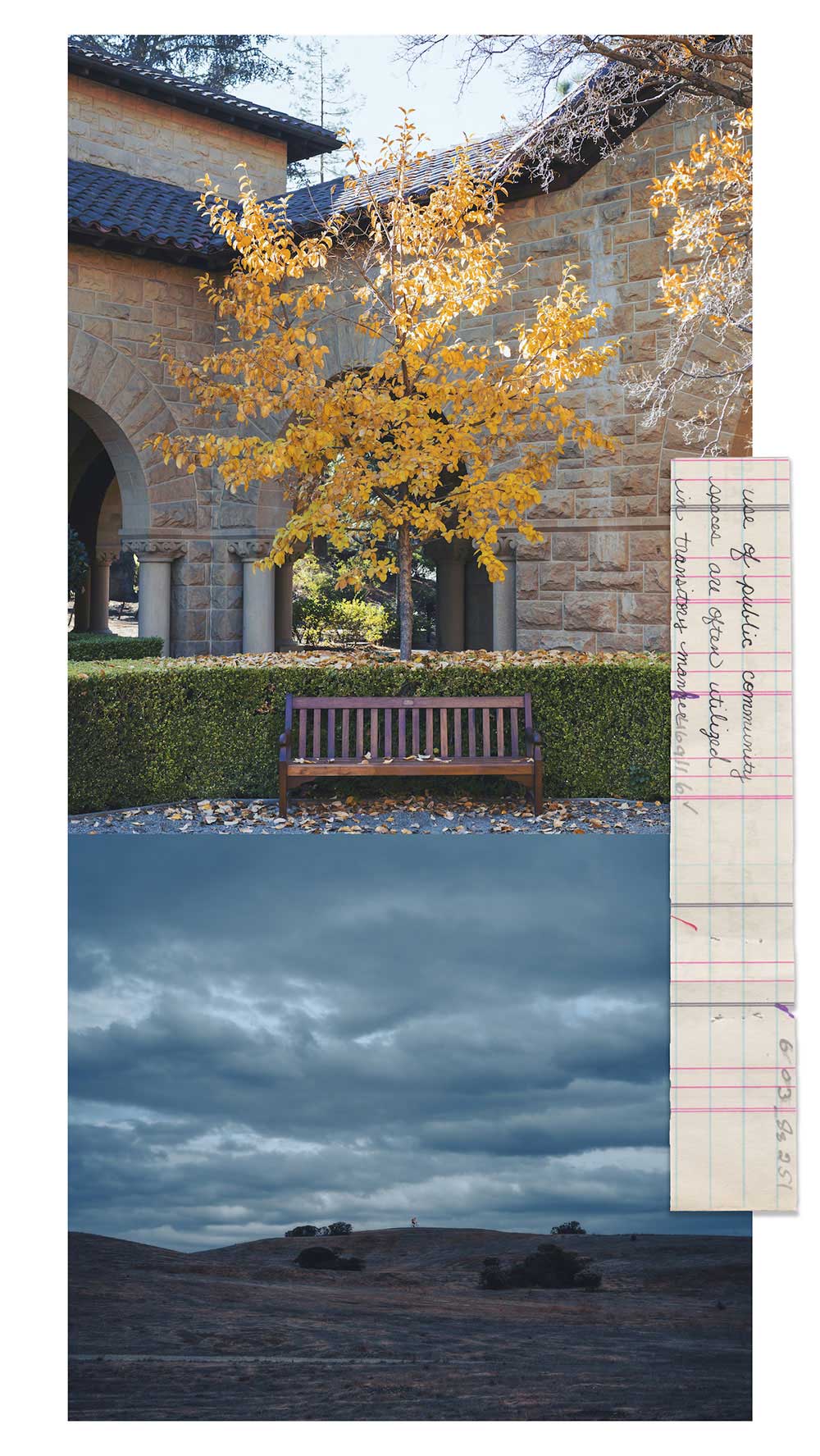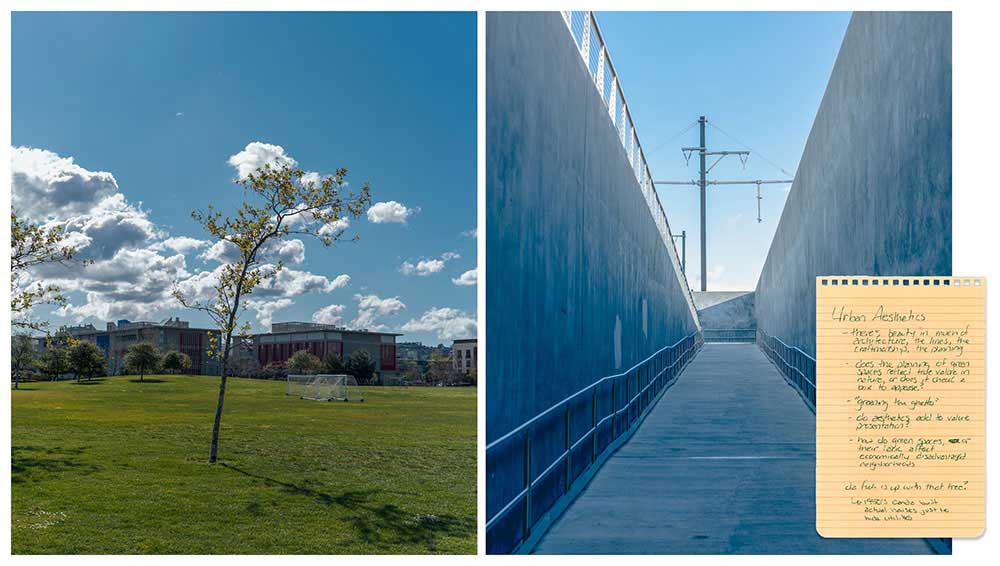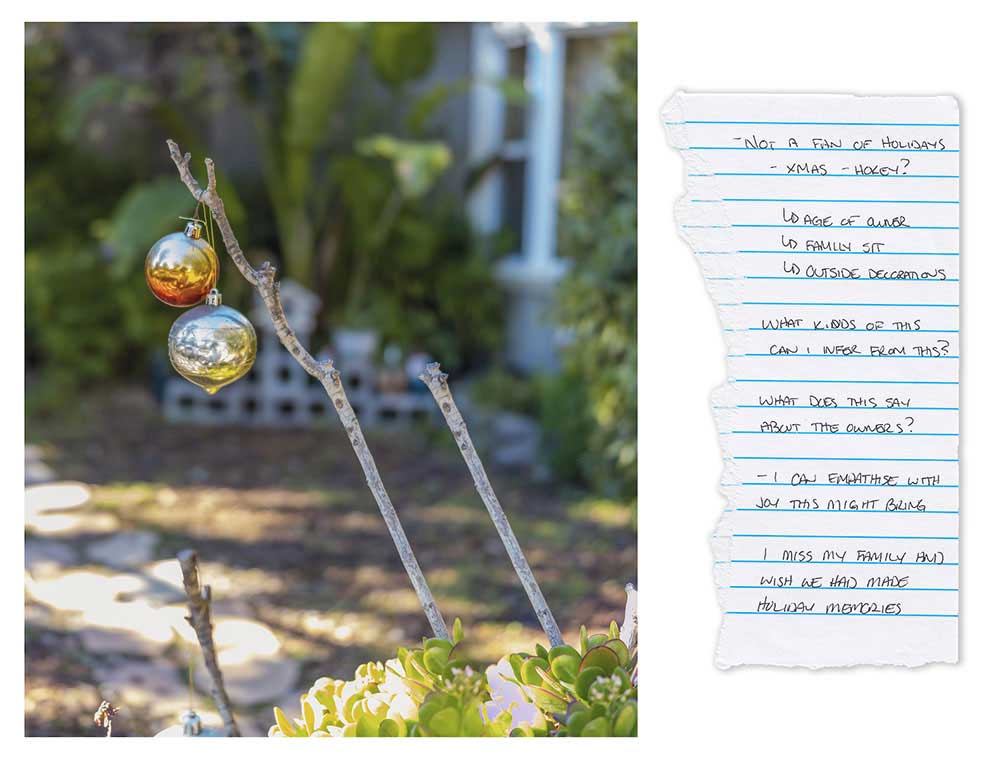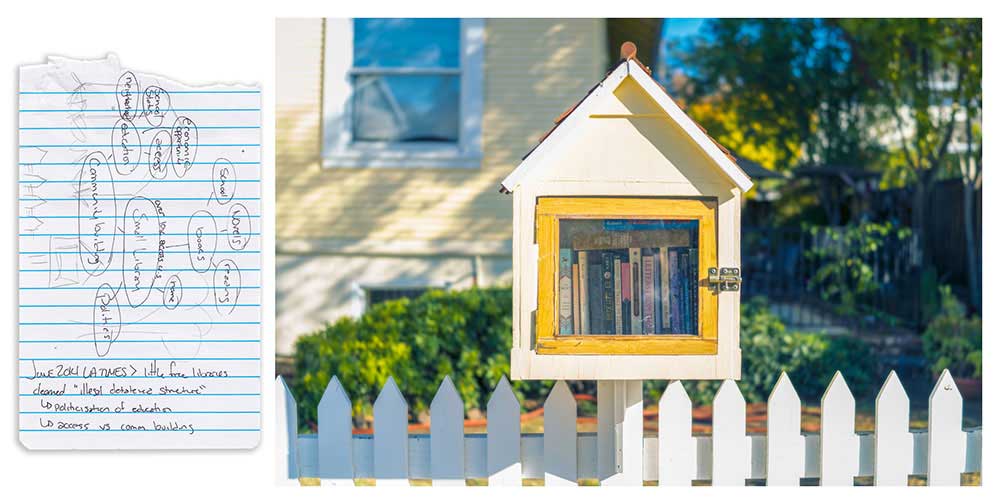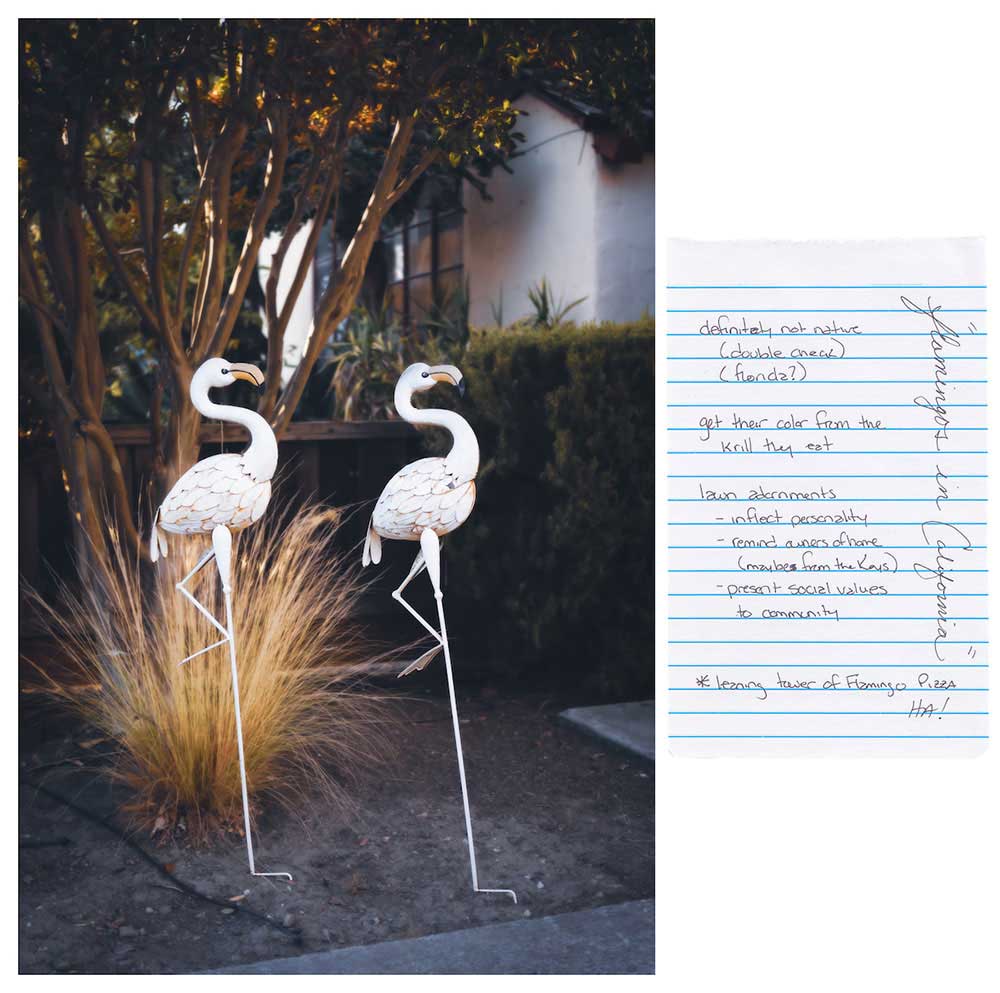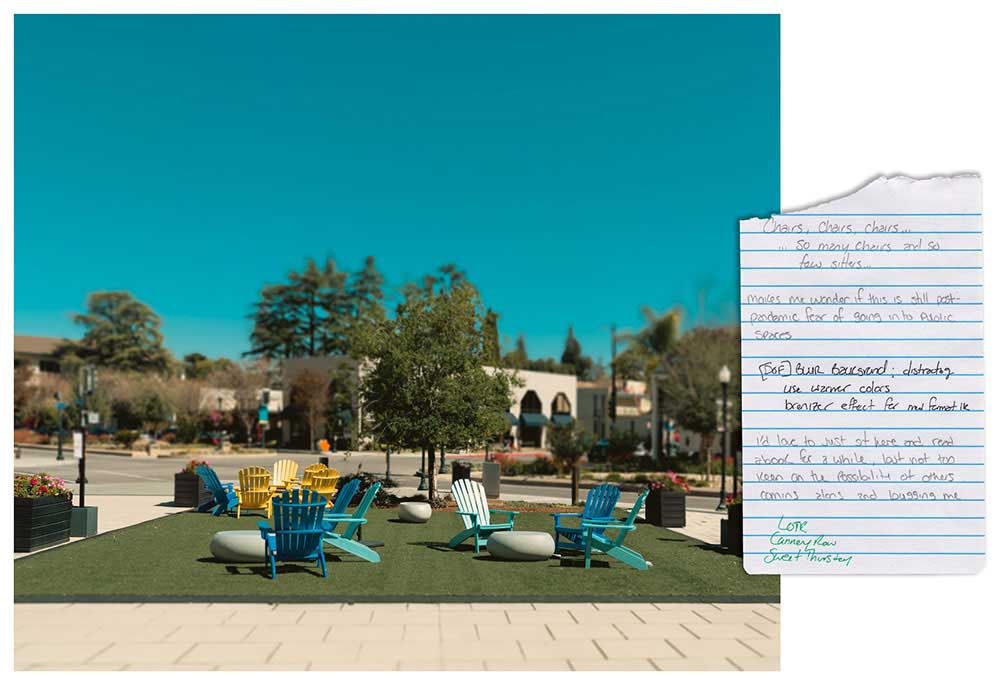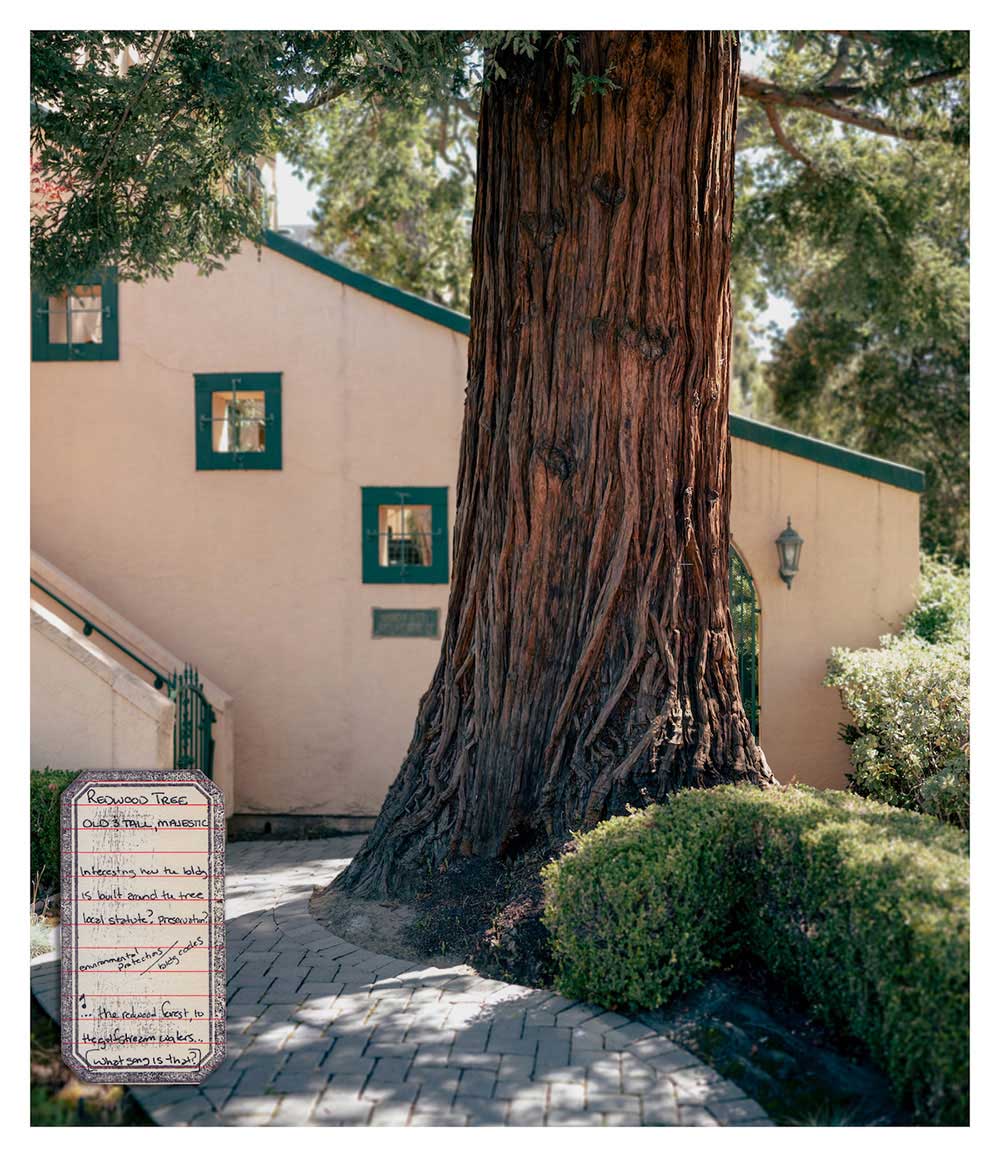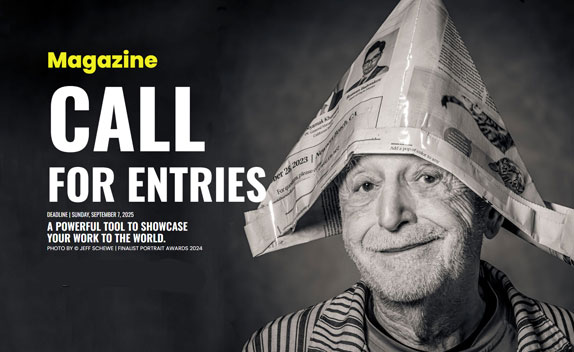Not Just a Series of Images is a photographic series that is a cross between a sociological field study and a lyrical fine-art project. The images depict subjectivity in visual truth in both the physical remnants of self-extension and intentional representation of altered claims of truth.
On the physical level, the intentionality of subject framing, omission of environmental context, and presentation methodology subversively skew what is photographed. On an ephemeral level, phenomenological examples of self-extension within the physical elements of the subject highlight encoded cultural importance and sociological value systems extended by those who interacted with the environment. Finally, on a perceptual level, the inclusion of personally written field notes that gently lead viewers to consider mundane to existential concepts adds an enhanced tier of subjective projection of truth.
This medium-based, lyrical documentary project began with the personal use of photography as a means of societal connection. In confronting my own tendency toward more introspective and introversive activities, photography served as a tool in self-actualization and identity formation while helping to bridge the gap in connection with society – even if from an observer’s vantage. I uncovered an innate ability to notice and interpret the subtle and almost unseen perplexities of human nature reflected in the inanimate remnants of interaction. With an undergraduate degree in Sociology, an intense desire to understand self and society, and an already-developed impulse for philosophical contemplating, it was easy to incorporate the entrenched habit of seeing and experiencing into a visual representation.
Within this space, I seem to find the perfect place for my work to shine. The express intent of Not Just a Series of Images is to present overt examples of truth subjectivity through natural human influence and basic instinctual propensities. In other ways, I inflect intentional physical and personal impact to gently skew that projection of ‘truth’ within the practice of study to reflect the subjective nature of personal experience. In this way, the series becomes one that various artists can encounter, including structured or scientifically-minded individuals as well as those who seek more sensorial and introspective episodes. Regardless of which social grouping the viewer falls in, they can expect to find a message that reflects their unique truth in discovering meaning from their own journey.
About Asher Honish
I began my photographic career as a criminal at the age of eight. I learned two things through that experience; the first is that stealing is wrong. In small towns, storekeepers tell your parents that you stole a disposable Kodak camera from the convenience store. Secondly, I saw the world through a different lens than most. I never got to expose the film from the stolen camera, but my love for photographing my world was forever entrenched.
After that experience, my mother helped curate my curiosity about how I see the world, look at it with curiosity, and find meaning in things often overlooked. This fascination with visual documentation was further enhanced during my undergraduate education in sociology. The use of photography became a tool to study and ultimately find a connection within a world in which I often felt disconnected and outcasted.
Today I find my passion in urban landscape photography, where I can study society, how it works, how people interact with each other and their environment, and how we reflect and present societal values. Not only does this provide for significant research, but the practice itself reminds me of just how connected I am with humanity.
Much like my delinquent beginnings, I continue to challenge sociological constructs through my photographic work. Whether eliciting discourse on economic advantage, determined roles per gender or culture, or simply disputing standard value systems, I hope to generate thoughtful discussions on the why’s behind many of our belief systems. I believe that when we truly reflect and consider underlying reasoning, we can become better citizens. [Official Website]


